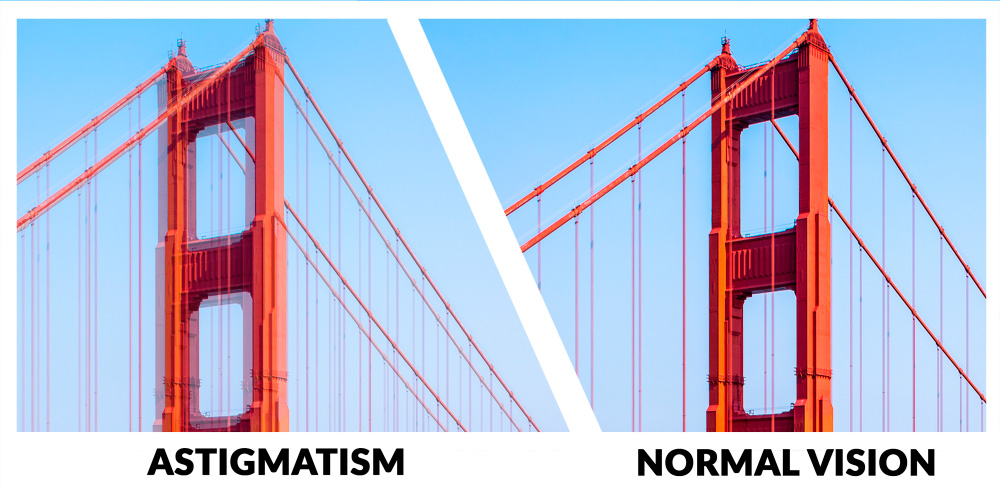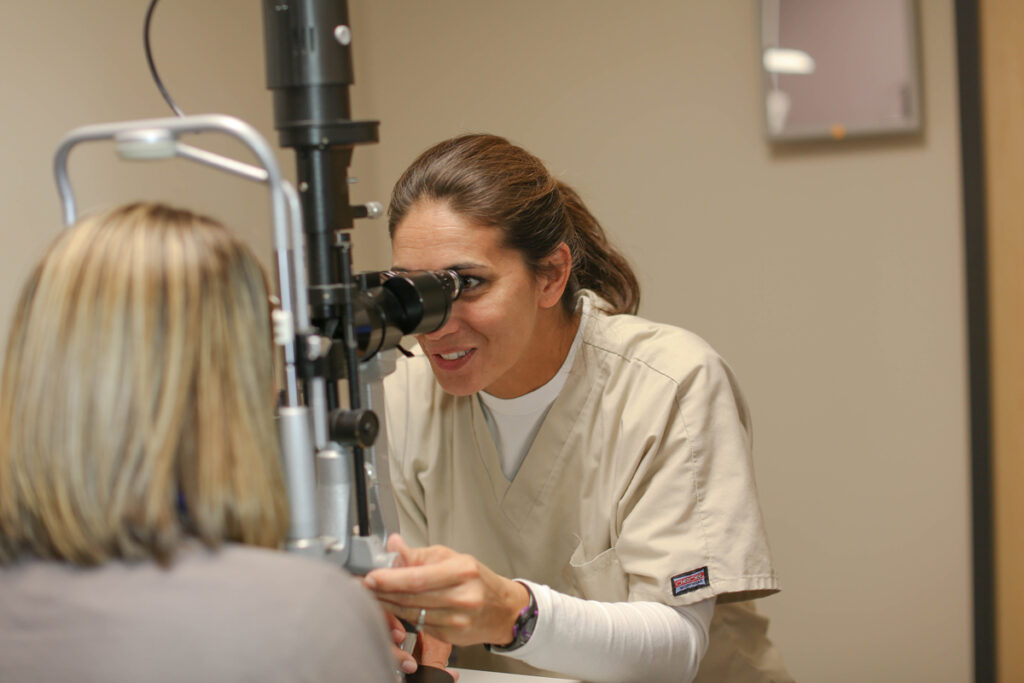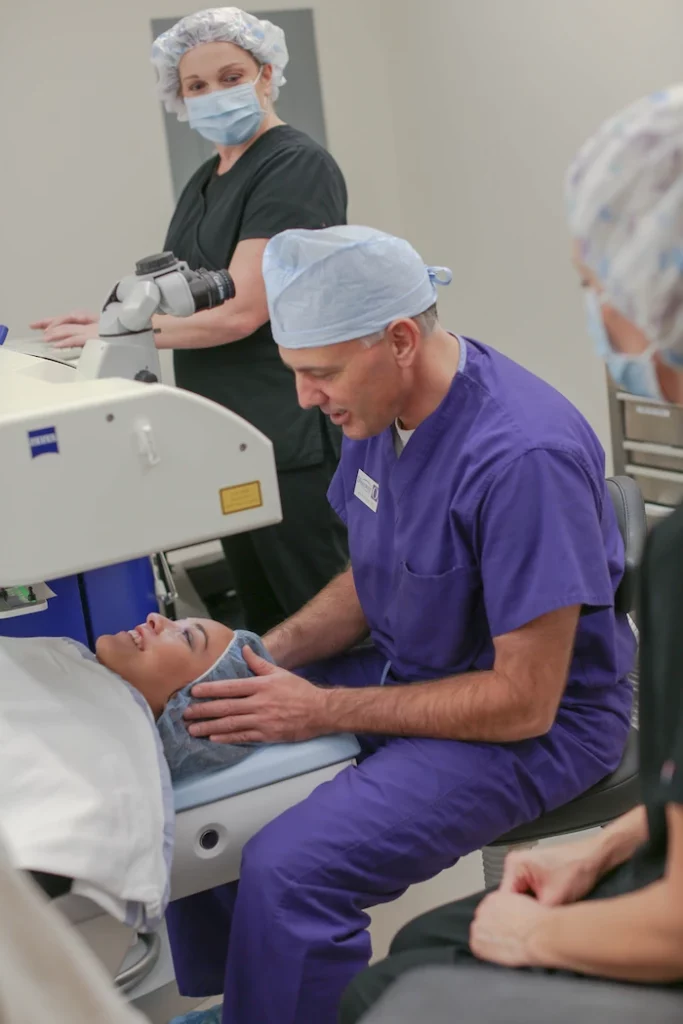What Are The Types of Astigmatism?
For astigmatic eyes, light comes to two focal points, rather than one. The power of the eye is based on the curvature of the horizontal and vertical meridian, and is divided into the following:
Myopic Astigmatism: when one or both of the eye’s meridians are myopic and focus light in front of the retina
Hyperopic Astigmatism: one or both meridians are farsighted or focus light behind the retina.
Mixed Astigmatism: one meridian is farsighted and the other is nearsighted.
Corneal astigmatism: Rather than being uniformly curved, the cornea is irregular in shape.
Lenticular astigmatism: Due to an irregular shape of the lens in the eye, rather than uniformly curved.















